“The Role of Political Parties in the Building of Democracy”
Moscow, 18-19 October 2006
FINAL CONCLUSIONS
by
the General Rapporteur
Mr Mikko Elo
1. The Forum for the Future of Democracy is an ongoing process under the auspices of the Council of Europe aimed at the promotion of democracy at the pan-European level and furthering reflection on its numerous aspects. Following the decision on its establishment by the Third Council of Europe Summit of Heads of State and Government in Warsaw in 2005, it is becoming a permanent feature of the European political landscape with its annual sessions devoted to different questions relevant to democratic processes.
2. The subject of the session held in Moscow on 18 and 19 October 2006, namely "The Role of Political Parties in the Building of Democracy", is a logical continuation of the discussions started at the launch meeting of the Forum in Warsaw in November 2005 devoted to civic participation. Between these two meetings, the Parliamentary Assembly of the Council of Europe has taken action with a view to elaborating a Code of Good Practices for political parties. The conclusions of the present session will be taken into account by the Parliamentary Assembly within the framework of the preparation of a recommendation addressed to the Committee of Ministers of the Council of Europe inviting this body to draw up the Code. The possible adoption by the Committee of Ministers of the Council of Europe of the Code resulting from this session would be an example to be followed in the future.
3. The discussions will be pursued at the forthcoming sessions of the Forum in Sweden in 2007, in Spain in 2008 and in other Council of Europe member states in the following years. It is important that all actors involved in these events - parliamentarians, governments, local representatives, civil society and academics - combine their efforts in the search for defining the most efficient ways of transforming the output of the Forum’s sessions into concrete action.
4. Moreover, the forthcoming debate of the Parliamentary Assembly on human rights and democracy, envisaged for the 2007 April part-session, will provide a further opportunity for reflection on possible ways of optimising the Forum as a tool for policy-makers.
*
* *
5. From the outset, all participants recognised the universal character of the principles of democracy; variations dictated by local specificities cannot put into question or dilute these principles. In addition, the democratic process presupposes a climate and conditions in which basic freedoms enshrined in the European Convention on Human Rights and its first Protocol are fully exercised and in which the media can work freely.
6. The participants in the Forum acknowledged that political parties constitute a permanent feature of all modern democracies and a key element of electoral competition. They play an important role in integrating groups and individuals into the political process. They serve as an essential instrument for the expression and representation of different interests, the establishment of public authorities at all levels, the elaboration of policies and alternative political programmes. They contribute to the democratic education and participation of citizens.
7. Since they constitute a crucial linking mechanism between civil society and the state, thus being the key link between society and democratic governance, political parties bear a particularly heavy responsibility. The question of their legitimacy and credibility is of the utmost importance for the legitimacy of the democratic process and institutions. Political parties are increasingly being criticised and distrusted; they are often regarded as corrupt and as not serving the interests of the public at large. The decline in confidence tends to result in indifference towards politics, decreased participation in political life and low turn-out in elections.
8. The discussions of the Forum helped to identify a number of questions which inevitably will have to be addressed in the proposed Code of Good Practices for political parties, such as:
- the legal and administrative framework;
- the role of the Opposition;
- the financing of political parties and the funding of electoral campaigns;
- external and internal accountability;
- internal decision-making;
- selection of party candidates;
- equality/participation of women;
- involvement of young people;
- participation of minorities;
- communication with the electorate;
- political parties and civil society organisations and
- access to the media.
Political parties and contemporary challenges
9. One of the reasons for the weakness of parties is that in many countries the Executive plays a predominant role in decision-making. In these countries, it is necessary to move the focus of decision-making to Parliament. There is a need for a better balance between the executive and legislative branches.
10. Unduly high thresholds for the representation of political parties under proportional representation systems may be harmful because they exclude the representation of the voters of the smaller parties. Conversely, some majority systems may produce similar effects.
Political parties, civil society and other actors
11. One response to the current challenges is closer co-operation between political parties and non-governmental organisations. Working together they are able to deliver policies that serve better their societies.
12. Furthermore, new and alternative forms of democracy should be explored, including the possibility of drawing up the Code of Good Practices for Civic Participation.
13. New information and communication technologies have emerged. They should not be perceived as a threat to democracy, but as new opportunities to develop European democracies. The Internet, and E-democracy in particular, can contribute to attracting young people to political life.
Building and strengthening democratic institutions
14. Genuine democracy cannot exist without free and fair elections at national and local level. Nowadays, in many countries political parties are facing a crisis of legitimacy, which they should tackle in order to restore public confidence. This could be achieved through development of intra-party democracy, greater accountability and transparency of their decision-making bodies and effective links between party leadership and the local and regional levels of organisation.
15. A proposal to elaborate a European convention on electoral matters was noted. At the same time, it was underlined that a set of common standards on electoral issues already exists in the Council of Europe and the OSCE; the focus should now be on their full implementation. The advisability of drawing up a new legal instrument embodying electoral standards might be addressed by the relevant Council of Europe bodies.
*
* *
16. Representing all member states of the Council of Europe, the Forum expressed its support for democratic development in Belarus. The representatives of the Belarusian political parties and civil society are welcome to take part in the future Forum process. It will bring nearer "the day when Belarus is ready to join the Council of Europe ", as stated at the 3rd Summit of Heads of State and Government in Warsaw in 2005.
17. The momentum created by the Forum should be exploited by all the different stakeholders in order to ensure their own specific follow-up. In addition, political parties of Council of Europe member states should join forces to confront key challenges of today, such as terrorism, extremism, xenophobia, racism and religious intolerance.
18. Sweden, a strong supporter of the Forum process, will host the next session of the Forum from 13 to 15 June 2007. As in the previous two sessions, the 2007 Forum will bring together parliamentarians, governments, local representatives, civil society and academics in order to identify and promote important initiatives for democratic development, consider the scope of possible standards on democratic practice and share knowledge among participants. The proposed overall theme will be the close linkage between democracy and human rights.


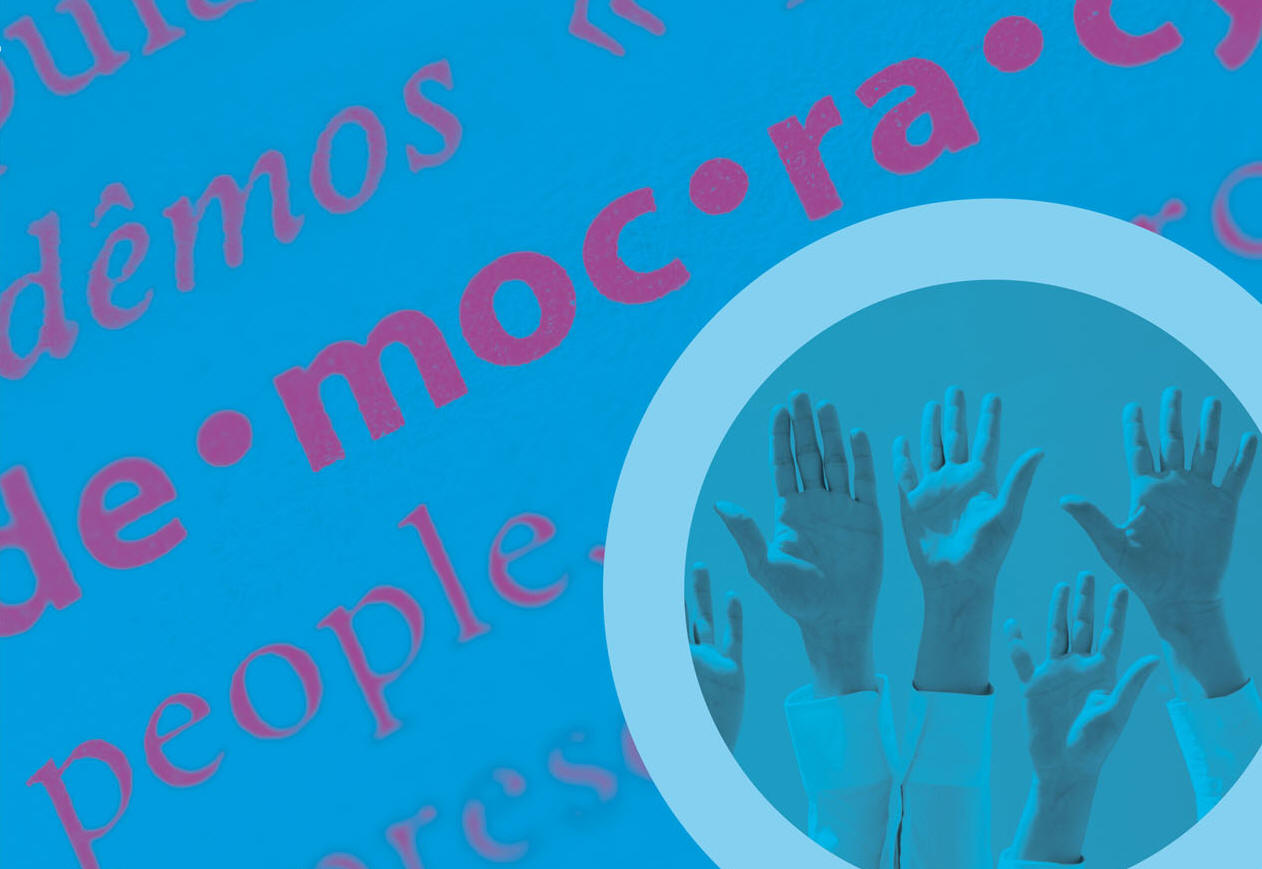
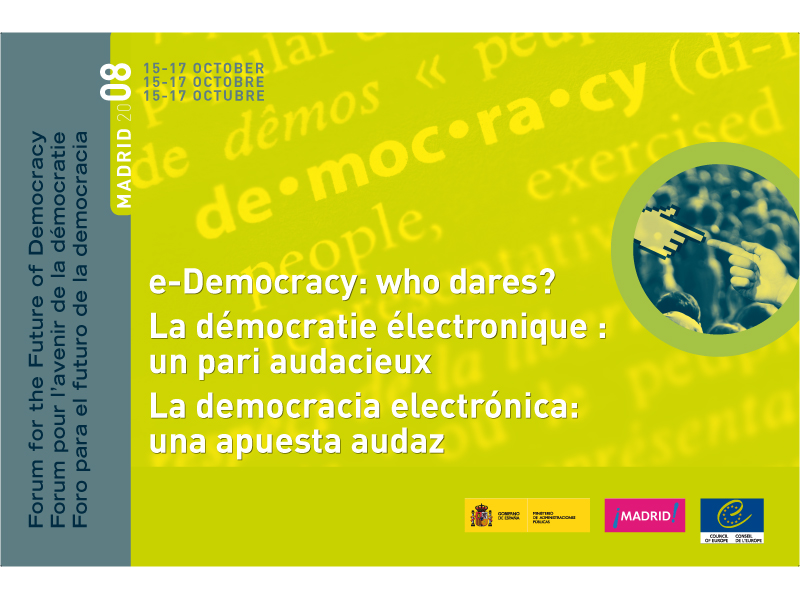
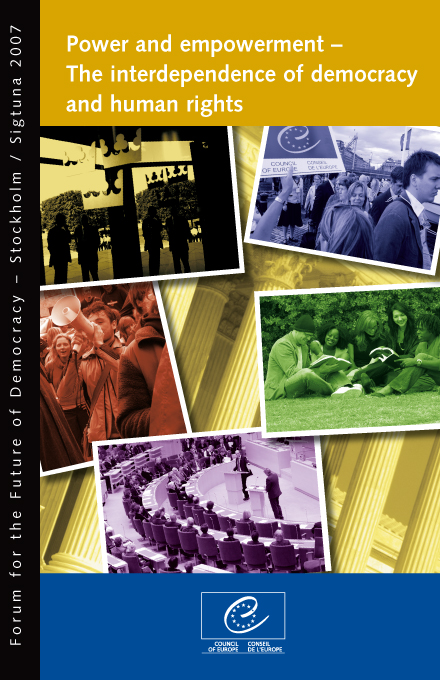
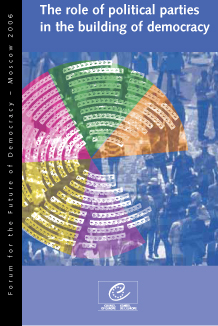
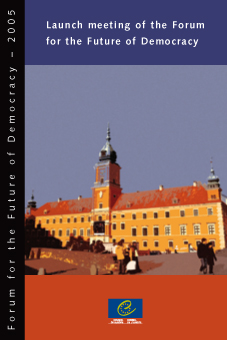
 Print
Print  Send
Send  FRANCAIS
FRANCAIS 

